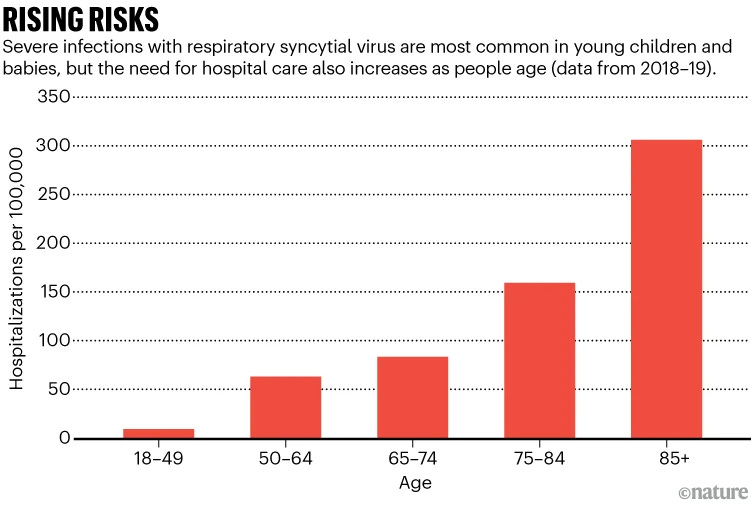Adults 60 years and older are at a higher risk for severe RSV and complications like pneumonia and hospitalization because our immune systems get weaker as we age.
Respiratory Syncytial Virus (usually called RSV) is typically thought of as an infection that is bad for infants and children. But you can get RSV at any age. In fact, since the immune system weakens as you get older, people 60 years and older are at higher risk for severe RSV infection and complications. RSV is worse for people who are immune-compromised and people with chronic heart or lung disease, which are more common in older age.
RSV symptoms
RSV in adults often looks very much like allergies or a regular cold. Other symptoms can be shortness of breath or difficulty breathing, which also can be confused with chronic obstructive pulmonary disease (COPD) or heart-related conditions. The convenient rapid antigen test for RSV is not very reliable in adults, so getting an accurate diagnosis can be a challenge.
Increased risk for older adults
In some cases, RSV can make you very sick. Other health conditions, such as COPD and asthma cause complications and more severe symptoms in older adults. For most adults, the cold-like symptoms will go away in 1-2 weeks. But for some–especially older adults–RSV symptoms can last longer, lead to pneumonia or congestive heart failure, and can make COPD and asthma worse. In fact, about one-fourth of adults with RSV infection have a lower respiratory complication like pneumonia or bronchitis.
The graph below shows that the risk of hospitalization increases with age and more than doubles for people ages 75 and older, compared to people in the next-youngest group.

Source: A. R. Branche et al. Clin. Infect. Dis. 74, 1004–1011 (2022)
RSV spreads quickly. While someone with RSV is usually contagious for 3-8 days, people with weakened immune systems can continue to spread the infection for much longer [archived link], even after they stop showing symptoms.
The new RSV vaccines for older adults dramatically reduce the risks of RSV
In the United States, RSV infection “season” is usually seen between late fall and early spring, peaking in winter. This means that it overlaps with COVID and flu season. It is also possible to get RSV multiple times. The new RSV vaccines for adults over age 60 typically provide protection for two seasons, and they reduce the risk of RSV-associated lower respiratory tract disease by at least 80%.
If you are 60 or older, you should talk to a clinician about getting the RSV vaccine.


